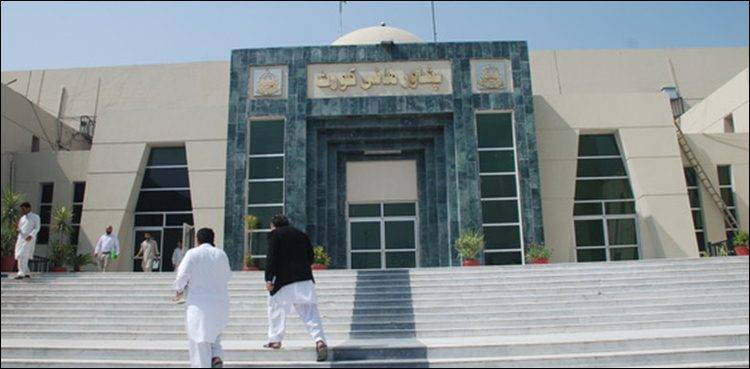By Staff Reporter
ISLAMABAD: A high court in Pakistan on Wednesday temporarily blocked the swearing-in of 22 lawmakers who were awarded reserved seats for women and minorities in the lower house of Parliament, following a legal challenge by a group of independent candidates allied with the party of former prime minister Imran Khan.
The Peshawar High Court, which oversees the northwestern province of Khyber Pakhtunkhwa, issued the order in response to a petition filed by the Sunni Ittehad Council, a religious party that teamed up with the independent candidates of Khan’s Pakistan Tahreek-e-Insaf party after they won the general elections in July 2023 without their electoral symbol, a bat.
The petitioners contested the decision of the Election Commission of Pakistan, the country’s electoral watchdog, to deny their claim for the quota of reserved seats, which are allocated among political parties according to their share of general seats.
The commission, in a 4-1 verdict on Tuesday, ruled that the Sunni Ittehad Council was not eligible for the quota because it failed to submit a list of candidates for the reserved seats before the elections, as required by law.
The commission also decided to distribute the seats to other parliamentary parties, with the Pakistan Muslim League-Nawaz and the Pakistan Peoples Party, the ruling coalition, becoming the main beneficiaries.
The verdict was rejected by the PTI. The party called the decision unconstitutional and vowed to challenge it in the Supreme Court.
On Wednesday, a two-judge bench of the Peshawar High Court, comprising Justice Ishtiaq Ibrahim and Justice Shakeel Ahmad, took up the petition and issued a notice to the election body and all the respondents in the case.
The court also raised several questions that needed to be resolved, such as whether the court had the authority to adjudicate on the matter, whether the petitioners had the legal standing to file the petition, whether the defect of non-submission of lists for reserved seats was curable under the law, and whether the Election Commission had misinterpreted and misapplied the provisions of the Constitution, the Elections Act and the Elections Rules.
The court further referred the matter to the chief justice of the Peshawar High Court for the formation of a larger bench to “adjudicate upon the intricate constitutional questions involved in the matter”.
“Notice to respondent 1 [Election Commission] for March 7. Till then respondents number five to 22 shall not be administered oath by the Speaker National Assembly,” the court said.
Qazi Anwar, a lawyer for the PTI, said the independents were forced to run in the elections as such after being deprived of the electoral symbol of the PTI.
“After emerging victorious, these independents joined the Sunni Ittehad Council,” he said. Anwar argued that independent candidates should have been free to join a political party within three days after the election results were announced, as per the election’s rules.
The lawyer said the PTI won 98 general seats in the National Assembly, and that the Sunni Ittehad Council was entitled to 22 reserved seats.
“But 21 women reserved seats and four minority seats were distributed among other political parties in Khyber Pakhtunkhwa.”
He claimed that the Sunni Ittehad Council-Pakistan Tehreek-e-Insaf reserved seats could not be “legally or constitutionally” allocated to other parties.
Copyright © 2021 Independent Pakistan | All rights reserved




